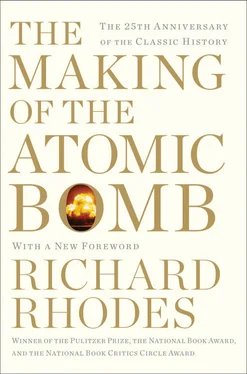His father stumbled in business, not for the first time. 627The family moved across the Alps to Milan to start again, but Albert stayed behind in a boardinghouse to complete his Gymnasium work. He was probably expelled from the Gymnasium before he could quit. He acquired a doctor’s certificate claiming nervous disorders. It was not only the autocracy of his German school that he despised. “Politically,” he wrote later, “I hated Germany from my youth.” 628He had thought of renouncing his citizenship while his family was still in Munich, as a rebellious adolescent of fifteen. That began a long family debate. He won it after he moved from Milan to Zurich to try again to finish his schooling; his father wrote the German authorities on his behalf. Einstein renounced his German citizenship officially on January 28, 1896. The Swiss took him aboard in 1901. He liked their doughty democracy and was prepared to serve in their militia but was found medically unfit (because of flat feet and varicose veins); but one reason he quit Germany was to avoid the duty of Prussian conscription, Kadavergehorsamkeit, the obedience of the corpse. 629
The boy and the young man rebelled to protect the child within—the “victorious child,” Erik Erikson has it in Einstein’s case, the child with its uninhibited creativity preserved into adulthood. 630Einstein grazes the point in a letter to James Franck:
I sometimes ask myself how it came about that I was the one to develop the theory of relativity. The reason, I think, is that a normal adult never stops to think about problems of space and time. These are things which he has thought of as a child. But my intellectual development was retarded, as a result of which I began to wonder about space and time only when I had already grown up. 631
“Relativity” was a misnomer. Einstein worked his way to a new physics by demanding consistency and greater objectivity of the old. If the speed of light is a constant, then something else must serve as the elastic between two systems at motion in relation to one another—even if that something else is time. If a body gives off an amount E of energy its mass minutely diminishes. But if energy has mass, then mass must have energy: the two must be equivalent: E = mc 2 , E/c 2 = m . 632(I.e., an amount of energy E in joules is equal to an amount of mass m in kilograms multiplied by the square of the speed of light, an enormous number, 3 × 10 8meters per second times 3 × 10 8m/s = 9 × 10 16or 90,000,000,000,000,000 joules per kilogram. Dividing E by c 2 demonstrates how large an amount of energy is contained within even a small mass.)
Einstein came to that beautiful, harrowing equivalency in 1907, in a long paper published in the Jahrbuch der Radioaktivität und Elektronik. “It is possible,” he wrote there, “that radioactive processes may become known in which a considerably larger percentage of the mass of the initial atom is converted into radiations of various kinds than is the case for radium.” 633Like Soddy and Rutherford earlier in England, he saw the lesson of radium that there was vast energy stored in matter, though he was not at all sure that it could be released, even experimentally. “The line of thought is amusing and fascinating,” he confided to a friend at the time, “but I wonder if the dear Lord laughs about it and has led me around by the nose.” 634He had his Ph.D. then from the University of Zurich and Max Planck had begun to correspond with him, but he had not yet left the patent office where he worked as a technical expert from 1902 to 1909, the years of his first great burst of papers including those on Brownian motion, the photoelectric effect and special relativity.
He habilitated as a Privatdozent at the University of Bern in 1908 but held on to the patent-office job for another year for security. Finally in October 1909, after receiving his first honorary doctorate, he moved up to associate professor at the University of Zurich. A full professorship enticed him to isolated Prague—he was married now, with a wife and two sons to support—but happily the Polytechnic in Zurich drew him back a year later with a matching offer. The academic hesitations measure how radically new was his work. It was 1913 before Max Planck, Fritz Haber and a muster of German notables, recognizing the waste, offered him a triple appointment in Berlin: a research position under the aegis of the Prussian Academy of Sciences, a research professorship at the university and the directorship of the planned Kaiser Wilhelm Institute for Physics. After the Germans left, Einstein quipped to his assistant, Otto Stern, that they were “like men looking for a rare postage stamp.” 635
He arrived in Berlin in April 1914. In the war years, separated from his first wife and living alone, he completed the general theory. To Max Born that “great work of art” was “the greatest feat of human thinking about nature, the most amazing combination of philosophical penetration, physical intuition, and mathematical skill” even though “its connections with experience were slender.” 636Einstein’s crowning achievement ameliorated for him the universal madness of the war:
I begin to feel comfortable amid the present insane tumult, in conscious detachment from all things which preoccupy the crazy community. Why should one not be able to live contentedly as a member of the service personnel in the lunatic asylum? After all, one respects the lunatics as the people for whom the building in which one lives exists. Up to a point, you can make your own choice of institution—though the distinction between them is smaller than you think in your younger years. 637
Einstein raised funds for the Zionist cause of a Hebrew university in Palestine on a first trip to the United States, with Chaim Weizmann, in April and May 1921. He had seen the crowds of Eastern Jews stumbling into Berlin in the wake of war and revolution, watched the German incitement against them and decided to take their part. His guide to Zionist thinking was the eloquent spokesman and organizer Kurt Blumenfeld, who also served in that capacity to the young Hannah Arendt. It was Blumenfeld who convinced him to accompany Weizmann to America—his relations with the forceful, single minded Weizmann, Einstein told Abraham Pais once, “were, as Freud would say, ambivalent.” 638He lectured on relativity at Columbia, the City College of New York and Princeton, met Fiorello La Guardia and President Warren G. Harding, conceived “a new theory of eternity” sitting through formal speeches at the annual dinner of the National Academy of Sciences and spoke to crowds of enthusiastic American Jews. 639
Back home he wrote that he “first discovered the Jewish people” in America. “I have seen any number of Jews, but the Jewish people I have never met either in Berlin or elsewhere in Germany. This Jewish people which I found in America came from Russia, Poland, and Eastern Europe generally. These men and women still retain a healthy national feeling; it has not yet been destroyed by the process of atomization and dispersion.” 640The statement implicitly criticizes the Jews of Germany, whose “undignified assimilationist cravings and strivings,” Einstein wrote elsewhere, had “always… annoyed” him. 641Blumenfeld propounded a radical, post-assimilatory Zionism and had taught him well. A decade later Hannah Arendt would write that “in a society on the whole hostile to Jews… it is possible to assimilate only by assimilating to anti-Semitism also.” 642Einstein specialized in driving assumptions to their logical conclusions: clearly he had arrived at a similar understanding of the “Jewish question.”
He was now not only the most famous scientist in the world but also a known spokesman for Jewish causes. In Berlin on June 24, 1922, right-wing extremists gunned down Walther Rathenau, the Weimar Republic’s first Foreign Minister, a physical chemist and industrialist friend of Einstein and a highly visible Jew. It appeared that Einstein might be next. “I am supposed to belong to that group of persons whom the people are planning to assassinate,” he wrote Max Planck. “I have been informed independently by serious persons that it would be dangerous for me in the near future to stay in Berlin or, for that matter, to appear anywhere in public in Germany.” 643He lived privately until October, then left with his second wife, Elsa, on a long trip to the Far East and Japan, receiving notice of his Nobel Prize en route. He spent twelve days in Palestine on the way back and stopped over in Spain. By the time he returned to Berlin, German preoccupation with politics had temporarily retreated behind preoccupation with the Dadaistic mark, then soaring toward 54,000 to the dollar. 644Einstein went on with his work, including the Einstein-Szilard refrigerator pump and his first efforts toward a unified field theory, but began frequently to travel abroad.
Читать дальше












